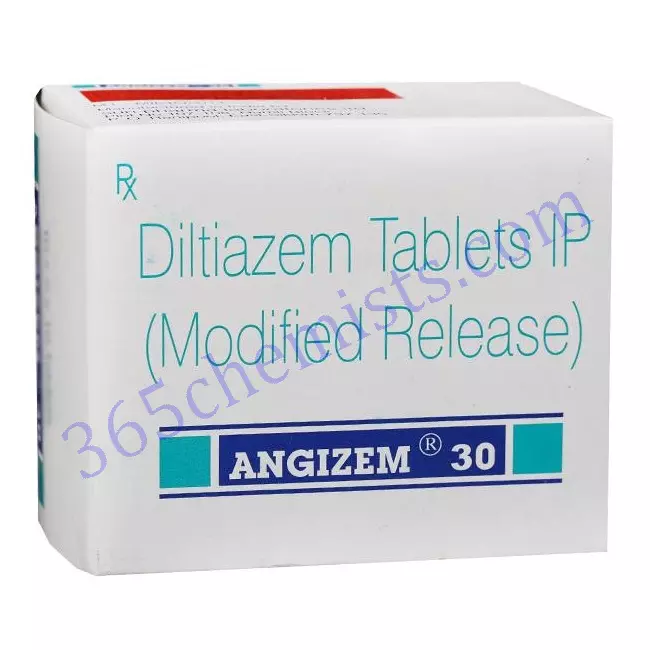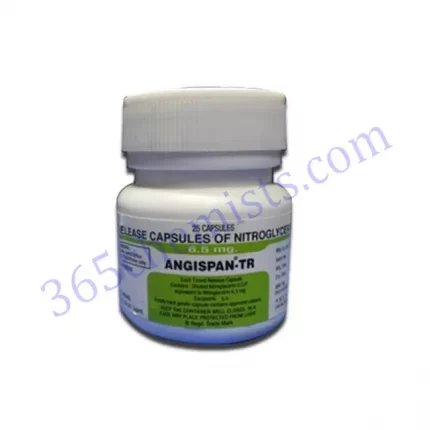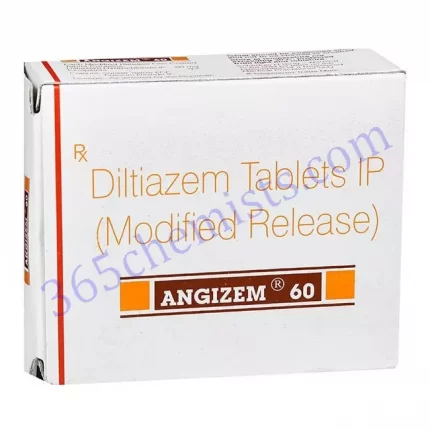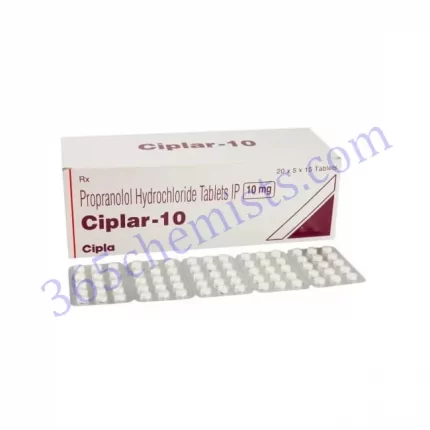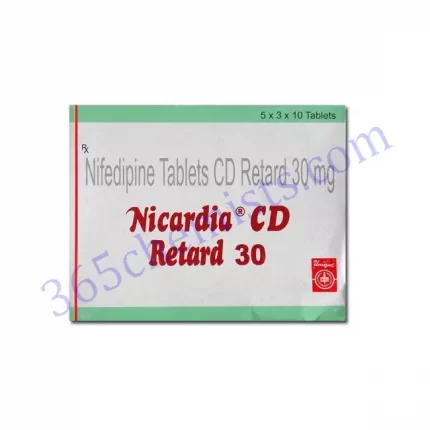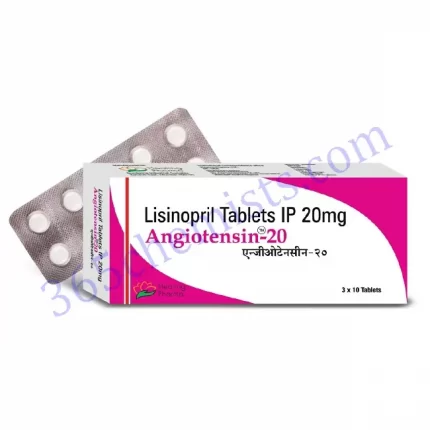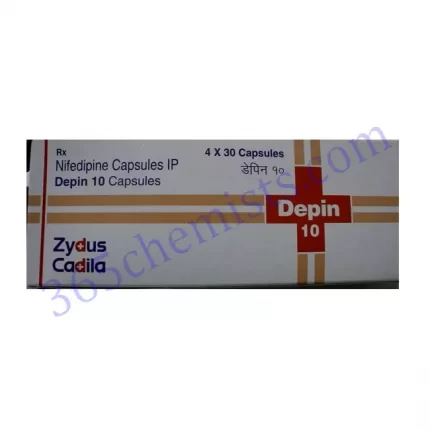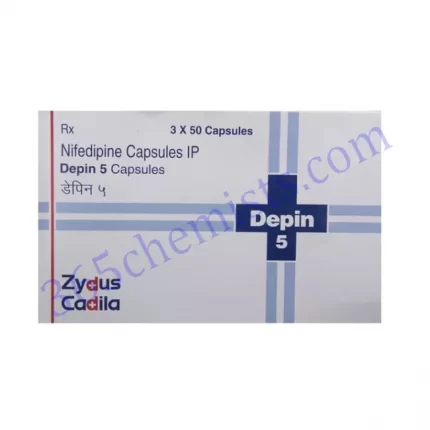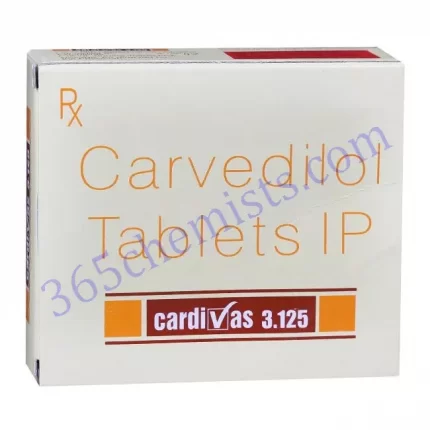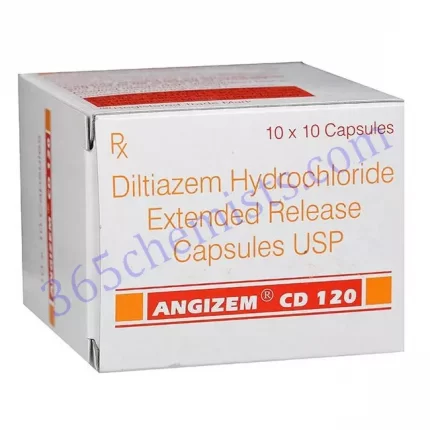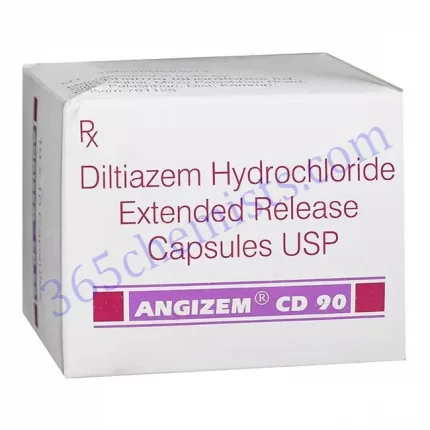Angizem 30mg Tablet: A Comprehensive Guide to Managing Cardiovascular Health
A variety of cardiovascular conditions can be effectively managed with the help of the medication Angizem 30mg Tablet, which is one of the reasons it is so commonly prescribed. The purpose of this in-depth guide is to offer helpful information regarding the applications, dosage, action mechanism, potential adverse effects, and safety measures that should be taken with Angizem 30mg Tablet. This guide will provide you with the essential information you need to make educated decisions about this potent calcium channel blocker, regardless of whether you are a member of the healthcare community or an individual who is interested in gaining a better understanding of this medication.
Understanding Angizem 30mg Tablet:
- Calcium Channel Blocker: The Angizem 30mg Tablet is a member of the class of medications known as calcium channel blockers. Calcium channel blockers are well-known for their capacity to relax and widen blood vessels, which ultimately results in an increase in blood flow and a decrease in blood pressure.
- Diltiazem, a powerful calcium channel blocker that effectively manages a variety of cardiovascular conditions, is the key active ingredient in Angizem 30mg Tablet, which is why it is called the “key active ingredient.”
Related Product
Angizem 30mg Tablet
Angizem 60mg Tablet
Angizem CD 90mg Tablet
Angizem CD 120mg Tablet
Angizem CD 180mg Tablet
Uses and Indications:
- Management of Hypertension: The Angizem 30 mg Tablet’s primary function is in the management of hypertension, also known as high blood pressure. Hypertension is a common condition that is associated with an increased risk of heart disease, stroke, and other complications.
- Angina Relief Additionally, the Angizem 30mg Tablet is effective in providing relief from angina, which is a pain or discomfort felt in the chest that is brought on by a reduction in the amount of blood flowing to the heart muscle.
Dosage and Administration:
Individualised Dosage: The dosage of Angizem 30mg Tablet is individualised based on the patient’s medical condition, response to treatment, and other factors as determined by the healthcare provider. This helps ensure that the patient receives the most effective treatment possible.
Patients who take Angizem 30mg Tablet should be advised to regularly monitor their blood pressure and to notify their healthcare provider of any changes in the readings or adverse effects they experience while using this medication.
Mechanism of Action:
Calcium Channel Blockade: The active ingredient diltiazem in Angizem 30mg Tablet works by blocking calcium channels in blood vessels, which causes the blood vessels to relax and widen as a result of the medication’s effects. This ultimately results in decreased peripheral resistance as well as a drop in blood pressure.
Possible Side Effects:
Common Side Effects You may experience common side effects from taking Angizem 30mg Tablet, such as lightheadedness, headache, flushing, and swelling in your ankles or feet.
Serious Side Effects Although they are uncommon, more serious side effects may be caused by Angizem 30mg Tablet. These side effects include chest pain, irregular or irregular heartbeat, and difficulty breathing. If any of these things happen, you need to seek medical attention as soon as possible.
Precautions and Warnings:
Pregnancy and Breastfeeding: Women who are pregnant or who are breastfeeding should talk to their healthcare provider before using Angizem 30 mg Tablet, as the drug’s safety during these times may not be completely established. Pregnant women should also avoid using Angizem 30mg Tablet.
Existing Medical Conditions Patients who already have certain medical conditions, such as problems with their liver or kidneys, should use Angizem 30mg Tablet with extreme caution and only under the supervision of a physician.
Drug Interactions:
Patients Should Inform Their Healthcare Providers Patients should inform their healthcare provider about any medications, supplements, or herbal products that they are currently taking. This is because Angizem 30mg Tablet may interact with certain drugs, which could result in potential adverse effects or a reduction in the drug’s effectiveness.
Grapefruit juice may interact with Diltiazem and cause an increase in the drug’s blood levels, which can lead to an increased risk of side effects. Grapefruit juice should be avoided. Patients who are taking Angizem 30 mg Tablet should refrain from consuming grapefruit or its juice during this time period.
Conclusion:
The Angizem 30 mg Tablet provides a remedy that is both powerful and efficient in the treatment of hypertension and angina. To achieve the best possible results while remaining safe, it is essential, when taking this or any other medication, to take the dosage that has been prescribed and to heed the guidance of medical professionals. Patients can take charge of their cardiovascular health and enjoy a higher quality of life by becoming educated about the uses, mechanism of action, and potential adverse effects of Angizem 30mg Tablets.

